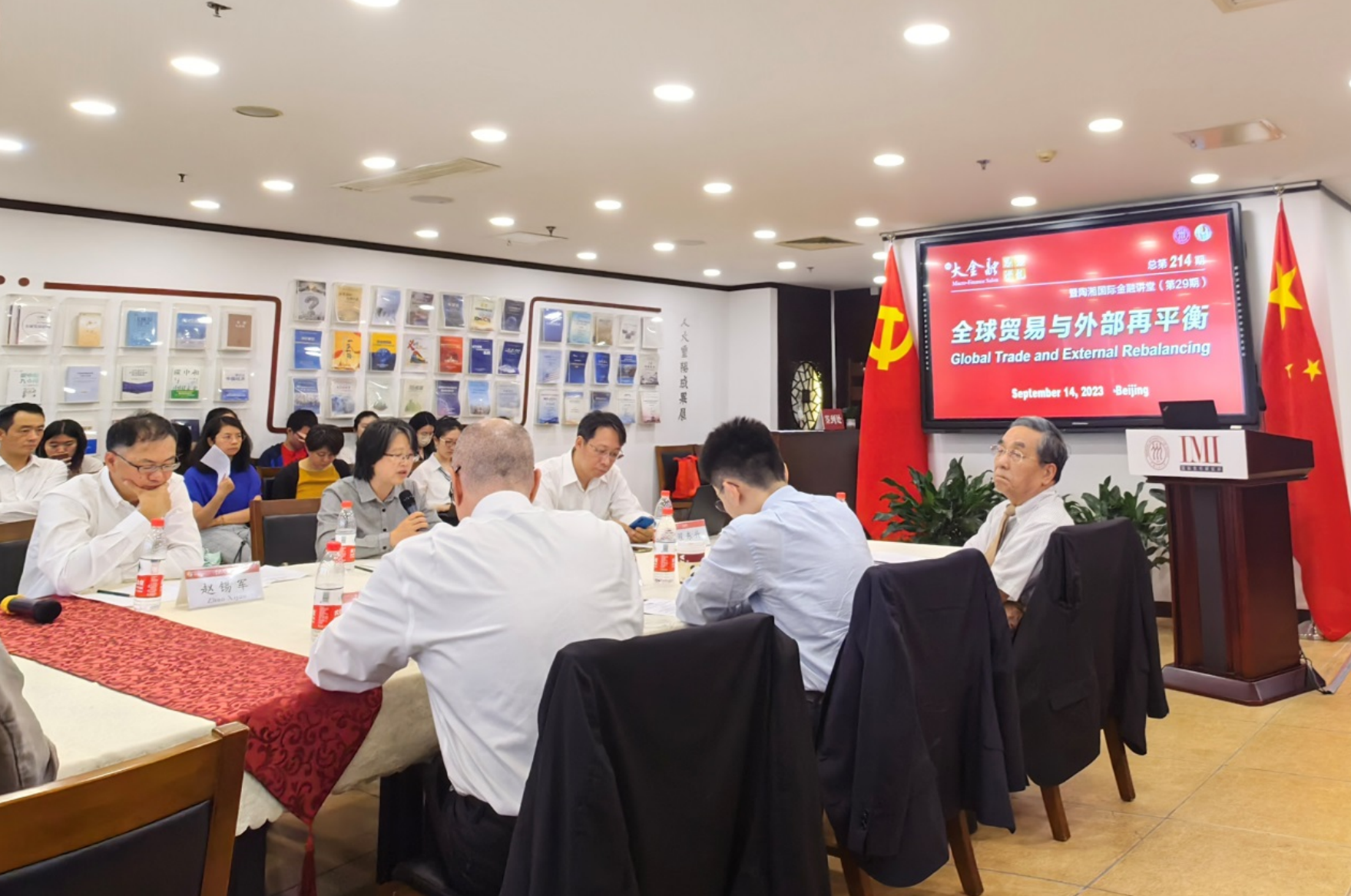Macro-Finance Salon (No. 214): Global Trade and External Rebalancing
2023-10-30 IMI

On September 14, the Macro-Finance Salon (No. 214), jointly organized by the International Monetary Institute of Renmin University of China and the School of Finance, was successfully conducted. The theme of this salon was “Global Trade and External Rebalancing.”
Mr. Chen Jiaqian, Deputy Director of the Open Economy and Macro Economic Division at the IMF’s Research Department, delivered the keynote presentation. The panel of participants included Steven Barnett, the Senior Resident Representative of IMF in China; Zhao Xijun, the Co-Dean of Academy of China Capital Market at Renmin University of China; Tu Yonghong, Deputy Director of IMI and Dean of the Research Institute of the Yangtze River Economic Belt at Renmin University of China; and Di Dongsheng, Associate Dean of the School of International Relations at Renmin University of China. The salon was moderated by Zhang Zhixiang, former Director-General of International Department of PBoC and former IMF Executive Director for China
Mr. Chen presented some of the major findings from the International Monetary Fund’s “External Sector Report” for the year 2023. He explained that the primary objective of the “External Sector Report” is to conduct a multilateral and consistent evaluation of the external positions of the world’s largest economies. This evaluation focuses on areas such as the current account, real exchange rates, capital flows, external balance sheets, and international reserves. The report identifies instances of excessive deficits and surpluses in current accounts, assesses risks within the external sector, and discusses potential policies to promote external rebalancing. The “External Sector Report” plays a critical role in fulfilling one of the core missions of the International Monetary Fund, which is to maintain stability in the international monetary system.
Mr. Chen provided an overview of the first two chapters of the report. The first chapter covers developments in the external sector over the past year, briefly addressing the prospects for global balance of payments and associated risks. Additionally, the chapter introduces the IMF’s methodology for evaluating the external sector, the outcomes of the assessment, and the policies aimed at facilitating external balance. The second chapter delves into the impact of the global U.S. dollar cycle on the external sector. Notably, the chapter underscores that the adverse spillover effects of the global U.S. dollar cycle are more pronounced and enduring in emerging market economies. The reduction of capital inflows and domestic credit through financial channels exacerbates these detrimental effects, while a more stable outlook for inflation and flexible exchange rate regimes may expedite economic recovery.
Translated by Zhang Xuanhao
